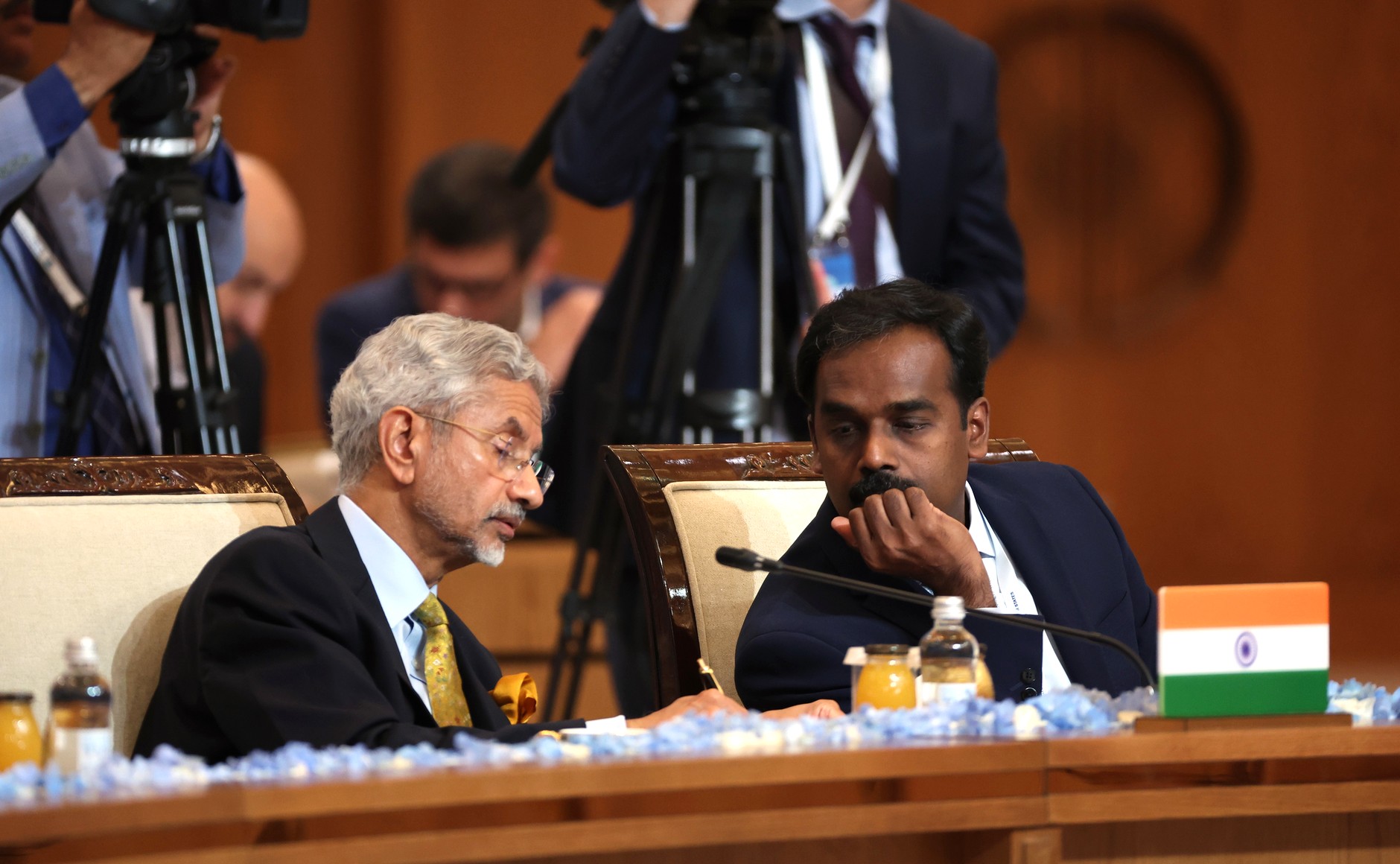The annual meetings of the Shanghai Cooperation Organisation (SCO) – the political, economic, security and defence organisation established by China and Russia in 2001 – have long attracted international attention. This year’s summit on 3-4 July, however, took on a new gravity, set against the backdrop of the Russia–Ukraine war, escalating tensions between Russia and the West, enduring strains in China–US relations, and the dynamics surrounding the US elections.
The SCO is seeking to evolve from a regional security framework to powerful geopolitical entity.
The recent accession of Russian ally Belarus to membership represents a push to transform the grouping in Eurasia as well as a move towards countering Western institutions led by the United States and its allies. Situated in Eastern Europe, Belarus’s integration demonstrates the intent to widen the focus of the SCO from China’s peripheral security to a more diverse and influential Eurasian organisation. This expansion not only increases its geographical and geopolitical reach, but also its status.
The SCO Secretary-General recently said the organisation has received membership applications from countries beyond the region, including from the Middle East, North Africa, South Asia and Southeast Asia, although did not specify which. This interest from the Global South demonstrates the growing appeal of the “SCO family” and signals the organisation’s future expansion in multiple directions.
China is intensifying interactions with Central Asian countries through the organisation.
The inaugural “SCO+” summit was also recently convened. Highlighted in the People's Daily – China’s official state newspaper – the summit was aimed at strengthening cooperation, which from the Chinese perspective, is crucial in an environment of escalating rivalries and ongoing conflicts, all of which are further intensified by Western policies such as economic decoupling and extraterritorial jurisdiction.
But it was notable too that India’s leader chose not to attend this year, delegating attendance to Foreign Minister Subrahmanyam Jaishankar. Shortly afterwards, Modi visited Moscow, a manoeuvre that likely reflects concerns about ongoing border disputes with China and India's positioning as a regional competitor. Additionally, India’s emphasis on foreign policy autonomy, demonstrated by its participation in the Quad grouping as well as Modi’s attendance at the G7 summit in June likely also explain Modi’s absence from the SCO. However, despite these tensions, India’s choice to maintain strong bilateral relations with Russia – seen to be crucial for economic and energy cooperation, geopolitical balancing, and military support – means India will remain entwined with the SCO in a delicate balance.

Although long-term stability remains a central theme for the SCO, the documents signed at the latest summit reflect an expanded agenda. These include strengthening cooperation and coordination in sectors such as energy, investment, the digital economy, local currency settlements, environmental protection, information security, and food security. This broader focus mirrors the complex interdependencies that define the modern international order, but more so, an effort to enhance the SCO’s relevance.
Simultaneously, China is intensifying interactions with Central Asian countries through the organisation. Historically, China has sought to leverage the SCO to strengthen its bilateral relationships, particularly economically, as demonstrated by initiatives such as the China-Kyrgyzstan-Uzbekistan Railway, the SCO Bank, and the SCO international road transportation agreement. This effort was limited by Russia’s traditionally cautious stance on such overtures. But notably the Russia-Ukraine conflict has seen a waning of Russian influence in Central Asia, and a tacit Russian acquiescence to more robust exchanges between China and the Central Asian states.
Since its inception in 2001 with only six members, the SCO has grown into a formidable cross-regional international organisation, comprising 10 full members, 14 dialogue partners, and two observers by 2024. This extensive network not only reflects the SCO's growing clout but also aligns with the broader eastward shift of the global economic and political centre of gravity. The summit communique notes “the SCO is not targeting other countries and international organisations”. Yet this declared caution contrasts with its perceived expansionist endeavours and complicates how it will be received internationally.

